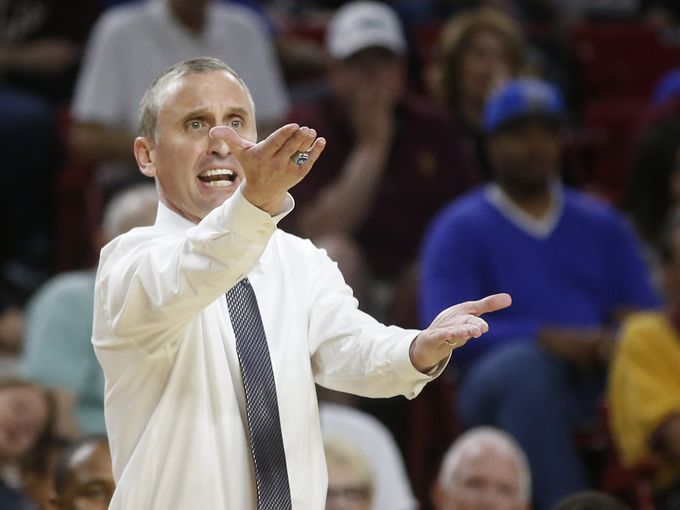In February, 1983, Arizona State’s baseball program was celebrating its 25th anniversary as a varsity sport. The annual Alumni Game would be more than just the regular gathering of the big names of the program’s past. Every attempt was made to bring back as many Sun Devil Baseball alumni as possible.
Head Coach Jim Brock, in his 12th season at the time, was nervous.
Brock rarely let anyone see anxiety in his actions, but there was a reason he was frantically checking and re-checking details of the day ahead.
For the first time since he left Arizona State University in 1971, Bobby Winkles was coming back.
Winkles, who passed away Friday at the age of 90, was ASU’s first and most successful varsity baseball coach. That designation is important. ASU had played baseball for five decades before varsity status in 1958. Under Winkles, the Sun Devils won three National Championships (1965, ’67 and ’69), and the program produced numerous players who went on to success in the Major Leagues. Names like Reggie Jackson, Rick Monday, Sal Bando and Gary Gentry were among those whose path to the big leagues was paved with the help of the man who left a minor league playing career to come to Tempe.
Rest In Peace Bobby Winkles…A true legend and a man that I greatly admired. You are The Godfather who established a tremendous culture, tradition and what it means to be a Sun Devil. You are the best, Coach. God Bless you and your family. ?#asubaseball #foreverasundevil ?
— Willie Bloomquist (@williebloom) April 18, 2020
More than just the on-field success, Winkles also was part of a quartet of ASU coaches who ushered in the modern era of Sun Devil Athletics. Throughout the 1960’s, its was Frank Kush (football), Ned Wulk (men’s basketball), Baldy Castillo (track and field) and Winkles that became synonymous with the school they worked for.
Winkles’ passing is not just one of those “end of an era” events. It is, in effect, the final farewell to a time when athletic programs at a university seemed to work more in connection with one another.
For example, the man known as “Mr. October” came to ASU on a football scholarship. He wanted to play baseball as well, and showed up to a fall baseball practice in his football gear. Imagine that happening today.
Today, many ASU Head Coaches attend games and support their colleagues in other sports. But gone are the days when more than one Head Coach would recruit the same player.
That’s what we say goodbye to.
Winkles left ASU after the 1971 season to accept a coaching position with the California Angels. Then-Athletic Director Fred Miller was sure Winkles would not enjoy the pro game, and hired Brock on a one-year trial basis. Winkles never came back…until that day in 1983.
Just got the word that @ASU_Baseball #LegendaryCoach Bobby Winkles passed away today. He had been battling for some time. I consider myself Lucky to have known him and to call him #MyFriend #RIPBobby pic.twitter.com/e0emDUe3R8
— Dave Rasley (@JoeBear72) April 18, 2020
ASU continued to enjoy success in the years that followed Winkles’ departure – Brock winning National Championships in 1977 and 1981, and the program continued to produce Major League stars. Still, every one of the four men who have held the title of Head Baseball Coach at Arizona State University since Bobby Winkles’ departure have both lived in some portion of his shadow, and have had him to thank for the legacy they inherited.
For several years, Winkles’ teams played portions of their home schedule at Phoenix Municipal Stadium, and in 2015, the Devils returned there. As fans enter the stadium, they are reminded of the history and tradition of Sun Devil Baseball. And through the main entrance, fans see the display honoring the man who started it all.
The man is gone, but his legacy will remain as long as baseball players don Maroon and Gold.
After the 1983 Alumni Game, Brock addressed those gathered at the 25th anniversary banquet that evening. He told the audience, “When you put on the uniform of the Sun Devils, you change as a person. And you are never the same again”.
What better way to sum up the impact of the man who arrived in Tempe in 1958 to start a varsity baseball program.
Not bad for an Arkansas farm boy.


